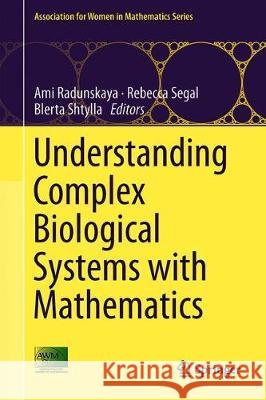Understanding Complex Biological Systems with Mathematics » książka
topmenu
Understanding Complex Biological Systems with Mathematics
ISBN-13: 9783319980829 / Angielski / Twarda / 2018 / 198 str.
Kategorie:
Kategorie BISAC:
Wydawca:
Springer
Seria wydawnicza:
Język:
Angielski
ISBN-13:
9783319980829
Rok wydania:
2018
Wydanie:
2018
Ilość stron:
198
Waga:
0.56 kg
Wymiary:
23.5 x 15.5
Oprawa:
Twarda
Wolumenów:
01
Dodatkowe informacje:
Wydanie ilustrowane











